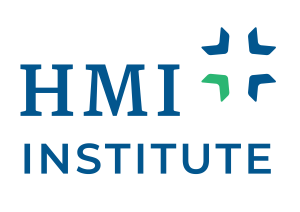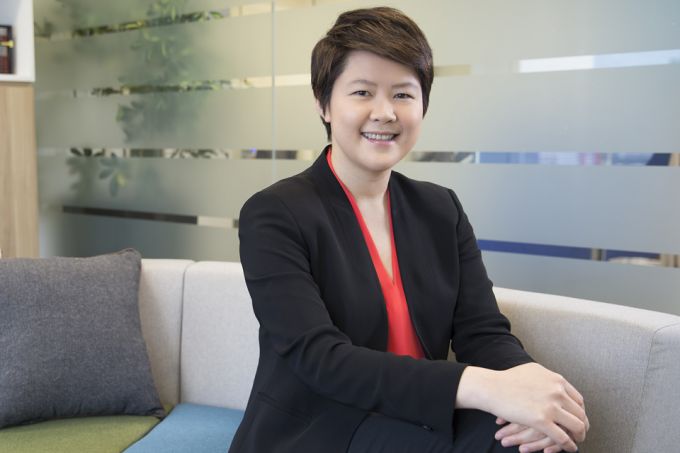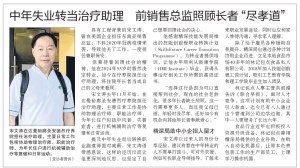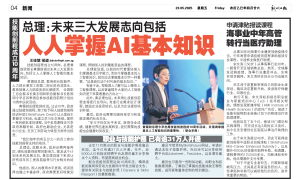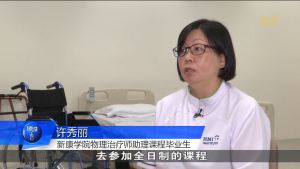HMI will be expanding its two hospitals in Malaysia and developing more holistic healthcare services for the region
THE old adage about how it’s not where you end up, but how you get there? It is true, especially for Chin Wei Jia, the group chief executive officer (CEO) of Health Management International Pte Ltd (HMI), a healthcare provider listed on the Singapore Exchange mainboard. Ms Chin, 39, did not study medicine in university, but had majored in economics and international relations. She joined HMI in 2002 as a management trainee, through which she learnt the different aspects of hospital operations and trained under mentors of various expertise.
She tells The Business Times: “Entering the medical industry was not something I had thought of. As a management trainee, I really started from the bottom and worked my way up. I got my hands extremely wet.”
Thanks to that experience, Ms Chin is able to understand the complex details and operational constraints of running a healthcare company. “I now look beyond just the big picture,” she says.
Ms Chin’s mother, Gan See Khem, is the executive chairman of HMI, while her father, Chin Koy Nam (a general practitioner), was an executive director until he retired in 2014. Her brother, Chin Wei Yao, is the group’s chief financial officer. “My parents started HMI. But the good thing about them is that they never expected any one of their children to join the company. It was more by choice.”
Ms Chin, who became CEO of HMI in early 2016, has big ambitions for the group. These include expanding its two existing hospitals, developing more holistic healthcare services for the region, and investing in the latest medical technologies (medtech).
HMI, which has a market capitalisation of some S$558 million today, runs two hospitals in Malaysia: the Mahkota Medical Centre in Malacca and the Regency Specialist in Iskandar, Johor.
The former, built in 1994, is HMI’s flagship hospital. The group had acquired a 20 per cent stake in Mahkota during the depths of the Asian financial crisis in 1998. But by 2002, HMI had managed to get the loss-making hospital to break even.
Starting this financial year, Mahkota will be getting a facelift. HMI intends to add new wards and clinics, offer more outpatient services, and develop centres of excellence at the hospital. Ms Chin says: “We are looking at very strong partnerships with doctors to develop comprehensive services by discipline.”
The Mahkota Cancer Centre, for instance, recently launched a PET-CT service that has been found to be extremely sensitive in detecting early stages of cancer. It is able to detect abnormalities even in the absence of structural change. That is, small tumours can be found by the service even if they are undetectable by other imaging procedures.
Says Ms Chin: “Our latest investment in PET-CT shows that we constantly invest in medtech. In medicine, there are always new technologies emerging. It’s about keeping up-to-date with the latest treatment options and trends.”
To do that, HMI harnesses the knowledge and networks of its over 200 specialist doctors, or “experts”, as Ms Chin calls them. She says: “These specialists drive the latest knowledge and techniques in health care through participating in global symposiums, working with companies on clinical trials, running seminars for other doctors, and just being in constant contact with their peers.”
HMI also has plans to enhance its other hospital, which was added to its portfolio in 2007 when HMI acquired a 35 per cent stake in an empty hospital building. Regency Specialist Hospital opened its doors in 2009, and is said to be one of the fastest-growing hospitals in Malaysia today.
Ms Chin says: “We are going to make a very major investment that will more than double the size of Regency.” This development, the construction cost of which is RM160 million (S$51 million), will make Regency one of the largest private hospitals in Malaysia. Work will begin this financial year, and take about 2.5 years to complete.
A unique service that Regency offers is a “full emergency specialist centre”, in which there will always be an emergency-trained specialist to respond immediately to trauma or major accident cases. Regency is the first and only private hospital in Malaysia to have this service in their A&E, says Ms Chin.
